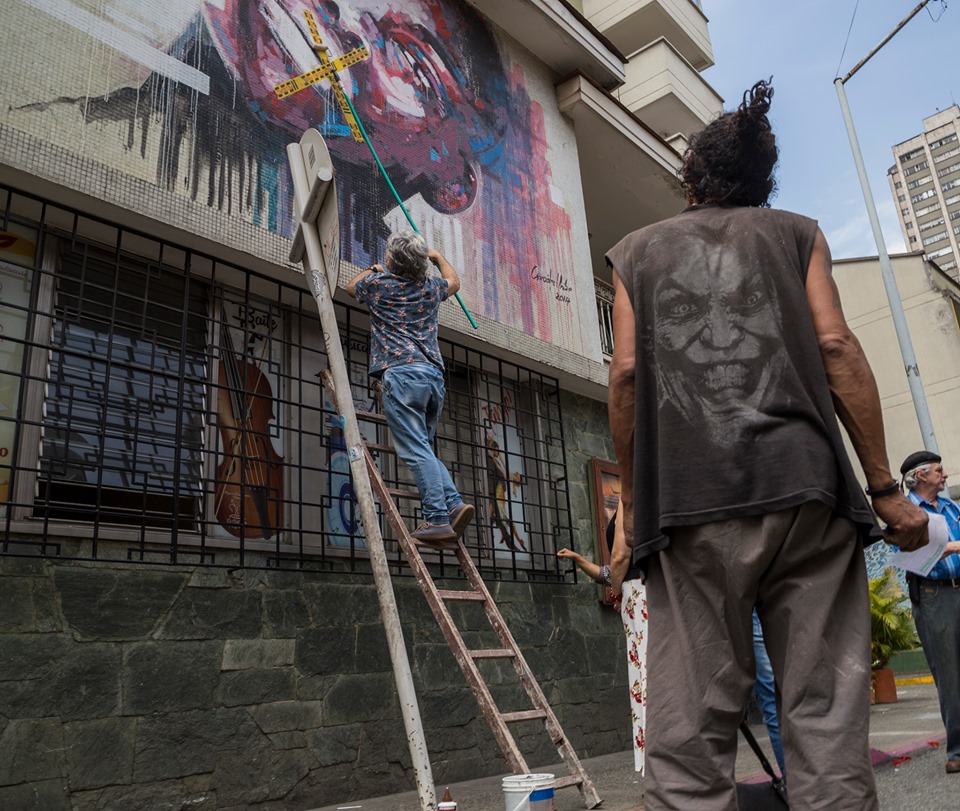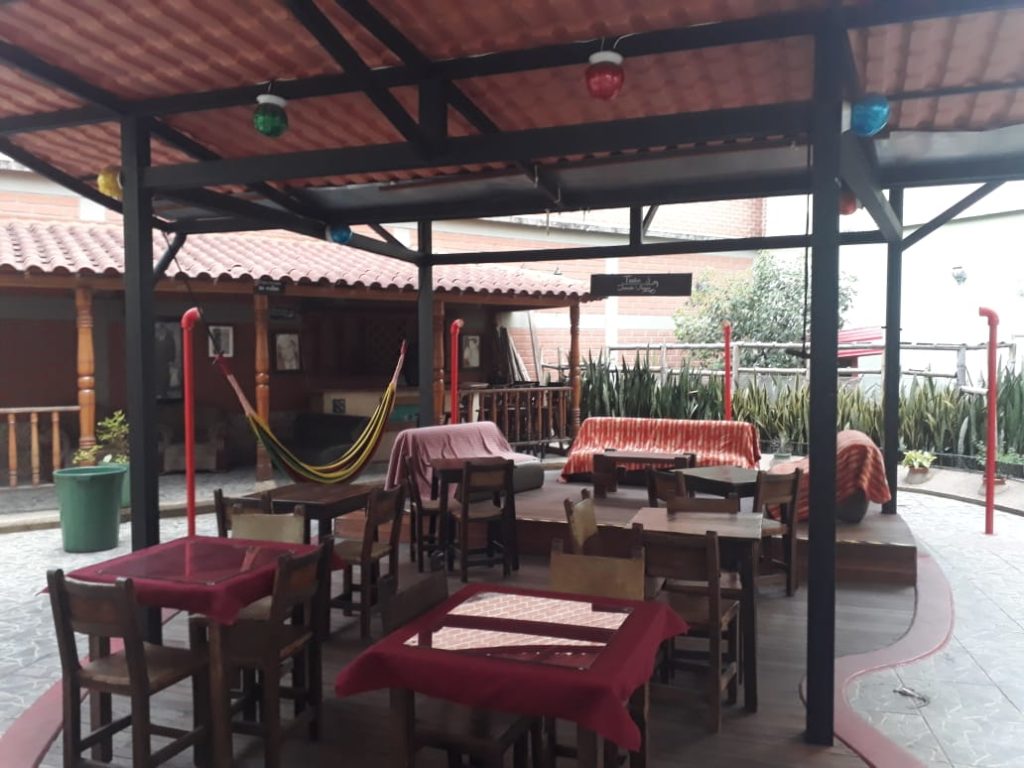
When a police inspector told 50-year-old artist Adriana Hernandez that Café Rojo — the cultural center she has run for nearly a decade — was to be closed down indefinitely in September last year, she felt attacked both personally and on behalf of the community she represents.
Shut down following two temporary suspensions of activity by the Medellín Secretary of Security, the Café Rojo has been unable to carry out activities for almost a year, while Hernandez contests the charges against the cultural center.

Before its closure, the Café Rojo offered dance, music, painting, sculpture and literature classes, alongside a program of regular cultural events such as poetry evenings and art displays, with each practice room dedicated to Colombian cultural icons.
Hernandez, who sees the closure as a “persecution of the arts and culture,” insists that the way the city treats artists is “discriminatory.” In Medellín, state support of the arts is “unfairly selective,” she told The Bogota Post, adding, “If you want to make it in the arts here, you have to work for a political party.”
Hernandez, a writer and actress who has “dedicated her life to the arts,” was loaned the house that became the Café Rojo in 2009 for a period of 25 years by the then-dean of the private Cooperative University of Colombia, on the grounds that she would use it to carry out cultural, economic and artistic activities.

“I was in love with the solidarity economy,” Hernandez said, referring to a movement that seeks to improve the quality of life of a community. “[I] was convinced that it was the way to bring together artists from diverse areas,” she added, describing her excitement at being given the opportunity to set up her very first cultural entrepreneurship project.
The business ran smoothly from its inauguration in 2013 until 2017, when state authorities visited the center and solicited a filling for an unused swimming pool. In July of the following year, the Café Rojo received another visit from local policemen, who claimed that the establishment was “not complying with the requirements for economic activity,” Local Government Sub-secretary Lina Calle told The Bogotá Post. This, combined with a failure to meet the standards of a health inspection, meant that the establishment was required to temporarily close for a period of ten days.
Hernandez insists that authorities acted against the cultural center based on false or uncorroborated accusations. “Members of the police arrived insisting there had been noise complaints against the cultural centre from the community, but not once did they specify who had made the complaints, nor show any evidence of them,” she said. Another grievance made by the inspector, Hernandez claims, was the negative impact that nude works of art could have on underage patrons — a 17 year old was in the establishment at the time of the inspection.
A month after the second inspection, authorities returned to the cultural center claiming they had received noise complaints, and reported once more that the economic activities being carried out by the center differed from those that the Chamber of Commerce had sanctioned. This time, the inspectors officially registered that the establishment was allowing the consumption of alcohol in the presence of minors, sub-secretary Calle pointed out. As a result, the center was temporarily closed again, this time for three months.
The two temporary suspensions of activity meant that the establishment was to be permanently closed in line with legal regulations, specified the secretary, preventing it from carrying out the same commercial activities ever again.
Insisting that the reasons given for the closure “[did] not correspond to reality,” Hernandez decided to legally appeal the decision, which she considers to be “sinister.”
“It’s not the law, it’s taking advantage of the law to go against someone, to go against an institution, to erase what they don’t support,” she said. “It seems like there’s someone behind all of this.”
As the year anniversary of the Café Rojo closure approaches, Hernandez and the center’s staff continue to protest the closure while they await the results of the lawsuit.





